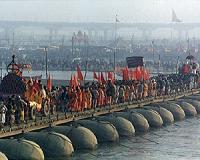| . |  |
. |
Bordeaux, France (AFP) March 4, 2010 The deadly storm that tore into southwest France this week wreaked more that a billion euros in damage on the proud region's key economic drivers -- tourism and luxury food production. In addition to the human toll of 53 dead, the hurricane-force winds and surging ocean waves smashed oyster beds and salt pans, sank yachts at anchor and tore down ski-lifts at the height of the season. The bill for Storm Xynthia is not yet in, but Bernard Spitz, the president of the French Federation of Insurers (FFSA), told AFP that initial estimates that damage could top a billion dollars were plausible. A catastrophic combination of vicious winds and surging high tides wrought destruction, ripped off roofs, up-ended boats, smashed ageing dykes, flooded homes and businesses and sent families scrambling onto rooftops. Rescue crews are still wading through filthy floodwaters in once pretty coastal towns, scouring ruins for missing householders. Around 50,000 homes remain without power and 52,000 hectares of farmland is flooded with salt water. President Nicolas Sarkozy visited the region to mourn "a national catastrophe, a human tragedy with a dreadful toll." Ski resorts in the Pyrenees, which were booked solid for the half-term school holidays, took a "hard hit, especially since the season was going well," said Laurent Thelene, director of the popular resort Superbagneres. Christophe Merlin, from the Hautes-Pyrenees regional government, said ski resorts had lost between 20 and 80 percent of their equipment, with damage to lifts, slopes, snow cannons, buildings, and cars. Further north in Poitou-Charentes, Socialist regional president Segolene Royal -- campaiging hard for elections next week -- announced three million euros in emergency relief for business. In La Rochelle, France's largest yacht marina Minimes saw five kilometres of pontoons and walkways destroyed when giant waves overwhelmed a dyke. "The marina is devastated," Michael Briant, an Englishman whose yacht is moored there told AFP. "Eight boats were sunk, six were in serious danger of sinking and 52 had bad damage. "The waves swept into the marina, lifted the pontoons over the concrete piers that hold the pontoons in place, and the pontoons came off, crashing down on the boats." Yacht builders, who employ 40,000 people, also felt the storm's wrath. "While the businesses located inland didn't suffer, others have nothing left," said Jean-Francois Fountaine, chairman of boat builder Fountaine-Pajot and president of the Federation of Nautical Industries. "A number of buildings are seriously damaged, a few practically flattened and all the tools and machinery are seriously harmed by the salt water." But, for Frederic Charpail of Voiles Incidences, a custom racing yacht builder, estimates the damage to his business alone at half a million euros. Off the coast, the raging sea reclaimed an historic path on the picturesque Il de Re, cutting the island into three parts. In its tiny ports, boats were tossed onto the quays. The much-photographed salt marshes, which produce the soft grains of "Fleur de Sel", coveted by chefs around the world, remain under two metres of water. "The salt marshes served as a life-saving buffer," said Loic Picart, head of the island's salt cooperative of 85 producers, explaining that salt canals absorbed enormous quantities of water and protected nearby villages. While lives were spared, the economic toll is high for these humble artisans who harvest their salt with wooden rakes. "1,500 tonnes of salt was stored outside, three years of harvest, and now 50 percent is gone," said Picart. Salt stored outside the cooperative's building, which was full, is not covered by insurance. "It's a total loss for some producers." Oyster farms also suffered appalling losses. On Ile d'Oleron, home of Marenne oysters, waves smashed farmers' wooden cottages into toothpicks. "Some lost everything -- the oyster beds devastated, the buildings flooded, even destroyed, boats sunk, machinery and trucks damaged," said Goulven Brest, national president of shellfish farming.
Share This Article With Planet Earth
Related Links Bringing Order To A World Of Disasters A world of storm and tempest When the Earth Quakes
 63 dead in Indian temple stampede
63 dead in Indian temple stampedeLucknow (AFP) March 4, 2010 Sixty-three people, all of them women and children, were crushed to death in a stampede on Thursday at a temple in northern India where a crowd had gathered for a religious festival. The stampede was triggered when an under-construction gate collapsed on the crowd as people surged forward to collect free food and clothes from a local holy man in northern Uttar Pradesh state, police said ... read more |
|
| The content herein, unless otherwise known to be public domain, are Copyright 1995-2010 - SpaceDaily. AFP and UPI Wire Stories are copyright Agence France-Presse and United Press International. ESA Portal Reports are copyright European Space Agency. All NASA sourced material is public domain. Additional copyrights may apply in whole or part to other bona fide parties. Advertising does not imply endorsement,agreement or approval of any opinions, statements or information provided by SpaceDaily on any Web page published or hosted by SpaceDaily. Privacy Statement |